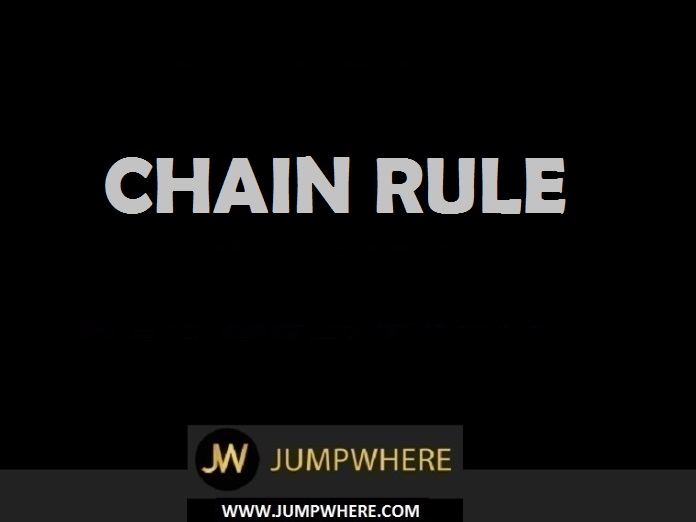[vc_row][/vc_row][vc_column][/vc_column][vc_toggle title=”Explanation / Important formulas:” el_id=”1481454282462-60885454-0285″]
Direct Proportion:
- Two quantities are said to be directly proportional, if on the increase (or decrease) of the one, the other increases (or decreases) to the same extent.
Example: Cost is directly proportional to the number of articles. (More Articles, More Cost)
Indirect Proportion:
Two quantities are said to be indirectly proportional, if on the increase of the one, the other decreases to the same extent and vice-versa.
Example: The time taken by a car is covering a certain distance is inversely proportional to the speed of the car. (More speed, less is the time taken to cover a distance).
Note: In solving problems by chain rule, we compare every item with the term to be found out
[/vc_toggle][vc_toggle title=”Instructions to take Aptitude Test” el_id=”1481454372988-cd8f0f96-30f0″]
- Click on start to start taking the test.
- Click on the option (A, B, C or D) to figure out the right answer.
- You can answer multiple times till you get the right answer.
- Once you get the right answer, explanations (if any) for the same will be showcased down.
- On click of list, you get to see total no of questions, no of questions you answered and no of questions pending to answer.
- On click of question number you will go to that particular question.
- On click of END your test will end.
- On click of ‘Get Results’ you will get to see correct answer for each questions.
[/vc_toggle][vc_toggle title=”Test – Chain Rule” open=”true” el_id=”1481454458410-9a4a39ac-c8b7″]
Chain rule - Question and Answers
Question 1 |
20 hours | |
60 hours | |
80 hours | |
70 hours |
Less man, more hours (indirect proportion)
15:36:: 25: x
15 * x = 36 * 25
X= (36 *25) / 15 = 60 hours
Hence 15 men’s can do it in 60 hours
Question 2 |
Rs. 2520 | |
Rs. 3065 | |
Rs. 7658 | |
Rs 2765 |
Question 3 |
16 days | |
12 days | |
22 days | |
26 days |
Question 4 |
1500 | |
1600 | |
1800 | |
1964 |
Question 5 |
16 | |
17 Hint: | |
19 | |
64 |
Question 6 |
87 | |
56 | |
48 | |
65 |
Question 7 |
100 patients | |
120 patients | |
95 patients | |
140 patients |
Question 8 |
13 days | |
27 days | |
17 days | |
18 days |
Question 9 |
25 | |
16 | |
20 | |
12 |
Question 10 |
46 | |
32 | |
35 | |
30 |
Question 11 |
6 days | |
12 days | |
3 days | |
4 days |
Question 12 |
2000 | |
1200 | |
600 | |
12000 |
Question 13 |
5 days | |
4 days | |
10 days | |
20 days |
Question 14 |
18 | |
24 | |
21 | |
28 |
Question 15 |
300 | |
400 | |
500 | |
250 |
Question 16 |
1260 | |
920 | |
1320 | |
1380 |
Question 17 |
Rs. 3000 | |
Rs. 4000 | |
Rs. 3500 | |
Rs. 2500 |
Question 18 |
486 | |
546 | |
626 | |
686 |
Question 19 |
40 hrs | |
50 hrs | |
60 hrs | |
70 hrs |
Question 20 |
2200 | |
2520 | |
2720 | |
3000 |
Question 21 |
44 m | |
49 m | |
54 m | |
59 m |
Question 22 |
19 | |
12 | |
15 | |
18 |
Question 23 |
1 | |
3 | |
7 | |
14 |
Question 24 |
22 metric tonnes | |
24 metric tonnes | |
26 metric tonnes | |
28 metric tonnes |
Question 25 |
1500 | |
1700 | |
1900 | |
2100 |
Question 26 |
12 | |
18 | |
22 | |
24 |
Question 27 |
48 paise | |
54 paise | |
56 paise | |
72 paise |
Question 28 |
Rs. (xy/d) | |
Rs. (xd) | |
Rs.(yd) | |
Rs. (yd/x) |
Question 29 |
10 | |
13 | |
14 | |
15 |
Question 30 |
50 | |
40 | |
30 | |
20 |
Question 31 |
3 | |
5 | |
6 | |
9 |
Question 32 |
Rs.(b*x) | |
Rs. {(b*x)/a} | |
Rs.{(a*b)/x} | |
none of these |
Question 33 |
20 | |
36 | |
25 | |
42 |
Question 34 |
42 | |
54 | |
90 | |
70 |
Question 35 |
10 | |
12 | |
6 | |
16 |
Question 36 |
12 | |
18 | |
6 | |
1 |
Question 37 |
20 | |
30 | |
24 | |
16 |
Question 38 |
12 | |
24 | |
6 | |
18 |
Question 39 |
4.5 | |
6 | |
12 | |
4 |
Question 40 |
36 | |
90 | |
40 | |
50 |
Question 41 |
Rs. (xd/y) | |
Rs. xd | |
Rs.(yd/x) | |
Rs. yd |
Question 42 |
50 | |
30 | |
40 | |
10 |
Question 43 |
65 paise | |
70 paise | |
52 paise | |
48 paise |
Question 44 |
15 | |
12 | |
21 | |
9 |
Question 45 |
205 | |
200 | |
195 | |
190 |
Question 46 |
49 | |
36 | |
50 | |
41 |
Question 47 |
12.5 m | |
10.5 m | |
14 | |
12 |
Question 48 |
44 | |
42 | |
36 | |
52 |
Question 49 |
7 | |
21 | |
14 | |
28 |
Question 50 |
1 | |
40 | |
26 | |
20 |
[/vc_toggle][vc_empty_space][vc_btn title=”More Aptitude Question” color=”warning” size=”lg” align=”center” button_block=”true” link=”url:https%3A%2F%2Fjumpwhere.com%2Faptitude%2F||”]


